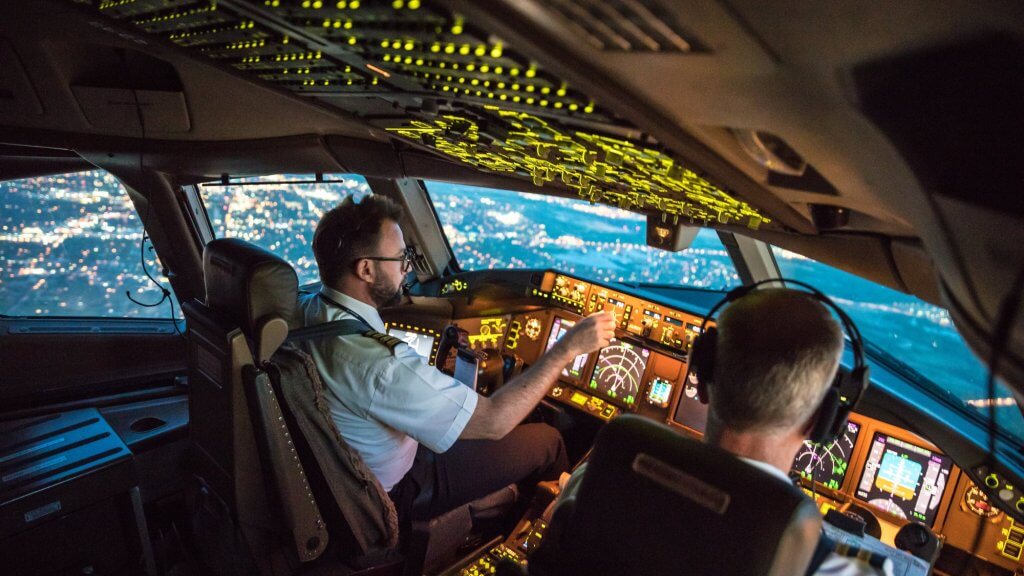Career
Aspiring Pilot? Don’t Miss Mastering These Skills!

A pilot has a lot of responsibilities, including the safety of the passengers. It necessitates having a wide range of skills and abilities, including a mix of both soft and hard skills.
These skills might not be the core qualifications to become a pilot, but having these will surely increase your chances of having a successful aviation career.
So pay attention to these skills and make sure you learn them as a budding pilot.
Table of Contents
Soft Skills
Soft skills are a mix of social, people, communication, personality, and career attributes that enables a pilot to sustain and work as a team and perform well to achieve goals.
Here are some of the desired soft skills that will help you go a long way.
Communication Skills
These skills are crucial in a pilot’s job. A pilot needs to communicate efficiently with the colleagues, Air Traffic Control (ATC), and passengers. Ineffective communication between air traffic controllers and pilots can result in serious aviation incidents.
So it is essential for a pilot to have efficient verbal communication skills and should be able to convey relevant details clearly and effectively.
Intense Focus
Being a pilot requires a lot of daring, dedication, and strong will to accept challenges. Flying an aircraft involves performing many tasks, and a pilot must focus and pay full attention while flying.
Along with navigating the aircraft, a pilot also needs to communicate with operations, ATC, cabin crew, and passengers and must effectively and simultaneously manage and take action on multiple priorities.
Teamwork
A team effort is vital to complete a task and achieve a common goal most efficiently. As a pilot, it is crucial to demonstrate the value of working with other crew members.
Moreover, a pilot needs to work with other teammates, such as dispatchers, crew members, and ATC. A professional pilot should cooperate reasonably with the staff and allow staff members to feel involved and help them reach their full potential.
Stress Management
A pilot may feel stressed in threat situations, and such circumstances require actions beyond a pilot’s normal operational intensity levels. So in case of an emergency, a pilot must stay calm and collected and act confidently under pressure and in difficult situations.
Hard Skills
Hard skills let pilots tackle job-specific responsibilities and duties efficiently. These skills are measurable and can be learned through aviation courses, vocational training, and job training.
Knowledge of Aircraft and Avionics
A pilot is responsible for in and out care and maintenance of an aircraft. Before takeoff, a pilot uses multiple checklists to make sure the plane is in proper shape. The pilot takes care of flight plans, fuel levels, engine performance, radio system, and navigation. Thorough knowledge of all these technical aspects is critical for safe operation.
Here are some of the most important ones:
Situational Awareness
It includes appreciating everything throughout the flight and maintaining and controlling the aircraft. A pilot needs to watch for weather changes, aircraft configuration, the energy state of the plane, and safety measures.
Lack of situational awareness could lead to loss of control, airspace infringement, or an encounter with adverse weather conditions. So a pilot needs to be attentive to everything going on during the flight and keep a constant evaluation of surroundings.
Whatever the circumstances, a pilot must make the right and mindful decision quickly if things go sideways.
The Insight of Math and Physics
A pilot needs to have a general insight into math and physics and deal with mass, balance, navigation principles, including several formulas and calculations. These formulas and calculations are taught during the aircraft training sessions. However, it is good to have prior knowledge and understanding of the concept of math and physics.
Final Word
As the main controller of the aircraft, the pilot must lead the crew towards success in crisis and deal with unforeseen threats that might arise anytime while flying. Make sure you acquire the above-listed skills for a successful career.
Happy flying!

-

 Business3 years ago
Business3 years agoHow to Do Long-Distance Moves with Children
-

 Travel2 years ago
Travel2 years agoQuick Guide: Moving To Santa Rosa?
-

 Real Estate3 years ago
Real Estate3 years agoWhy Dubai Festival City is a Great Neighbourhood for Young Learners
-

 Business3 years ago
Business3 years agoIs Guest Posting a Good Inbound Marketing Strategy?
-

 Business1 year ago
Business1 year agoThe Ultimate Guide To Thriving In Your Printing Franchise
-

 Business1 year ago
Business1 year agoExploring The Benefits And Challenges Of Restaurant Franchising
-

 Tech3 years ago
Tech3 years agoCyber Table That Will Change Your Life
-

 Lifestyle1 year ago
Lifestyle1 year agoDallas’ Hidden Gems: 6 Must-Try Restaurants Off The Beaten Path!









Recent Comments